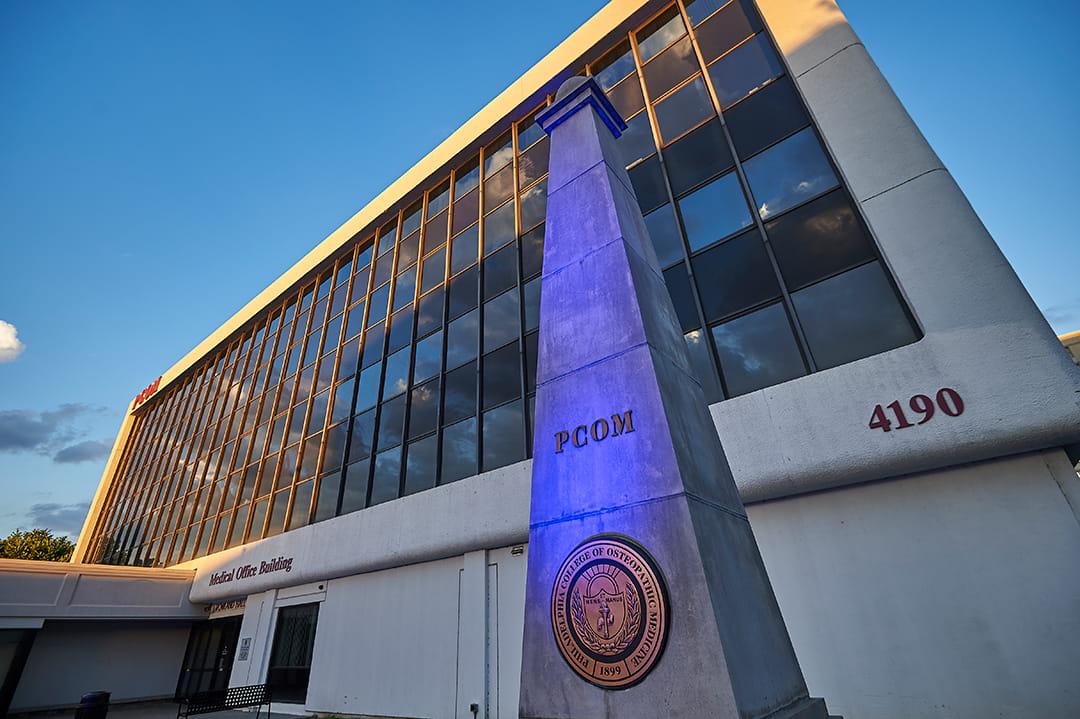Application Strategies for Georgia Medical Schools
Our primary goal at International Medical Aid (IMA) has always been to assist aspiring physicians in their goal to select, apply to, and gain acceptance to the medical school of their choosing. This was our motivation for developing this guide, which reviews the medical schools in Georgia. Perhaps you came across our guide by searching online for “medical schools near me,” and you were likely flooded with a great deal of information but little guidance to sort through it. Sometimes, this can be overwhelming and stressful. One of the features of this guide is that we’ve been able to take the plethora of information and summarize it into an accessible review of the best medical colleges in Georgia. Our hope is that this guide helps you make the right choice about which medical college to apply to.
Every school has its own admissions process and guidelines. No two medical schools or admissions committees are exactly the same. They each have their own unique set of standards, testing requirements, and medical program options. They are each looking for specific qualities in an applicant. Its important to research each school you are interested in, and this is where our detailed medical school guides will come in handy.
There will be certain parts of an application that each school’s admissions committee will be on the lookout for, including but not limited to good grades on prerequisites, a high MCAT score, United States citizenship, and more. Each school maintains their own list of the basic requirements needed to have any chance of making it to the secondary application or the interview stage of the process and beyond. You are required to have taken your prerequisite science coursework from an accredited college or university in the United States. They will also be on the lookout for any previous clinical experience or volunteer work you’ve done in the medical field, which they favor greatly.
Medical schools in GA can be challenging to gain acceptance to, and you’ll need to make sure to be as prepared as possible. In these competitive medical schools, they are used to higher GPA and MCAT scores, so give your 100% best effort every step of the way if you truly want to earn one of those coveted spots in one of the medical schools in GA.
When you do your “medical schools near me” search and select schools to apply to, make sure to consider all aspects of each school, including their vision, mission, and goals. What is the focus of the program, and does it align with your own goals for a career in medicine? Will you be a good fit for the student body, adding diversity and your own unique strengths, or will you fade into the masses? These are good questions to think about as you study the options.
Selecting the right medical school to apply to is absolutely vital. Aspiring medical students will come across as enthusiastic, confident, and dedicated if they are passionate about the school itself and what it stands for. The admissions committee wants to know you’ll be fully onboard.
Make Your Application Count: Medical School Admissions Consulting
There is plenty of information online about the medical schools of GA, and there is wonderful information here in our guides. However, there is no written guide or website that can better prepare aspiring doctors than expert one-on-one attention by an expert in the field of medical school admissions.
This is not a “one size fits all” situation. Each candidate is different, and every school is unique, so preparing and walking through the process really takes an individualized approach. It’s very important that your application stands out amongst the piles as one to take a closer look at. IMA’s medical school admissions consulting is a service that meets each applicant in the middle of their own unique story and walks them through the application process to give each one the best chance at matriculation.
You’ll receive much from our consulting program including:
- Strategy Planning
- Essay Editing
- Interview Preparation
- Mock Interviews
- More…
Our medical school admissions experts will assist you in applying to and being accepted into the best medical schools in Georgia. Visit IMA’s Medical School Admissions Consulting page and schedule your own initial consultation.
Georgia Medical Schools: Pre-Med Considerations
The best medical schools in Georgia are competitive and challenging to matriculate to. Planning early for medical school admissions is the ideal approach, and there are many steps you can take now in your planning stages that add to the quality and favorability of your application. If you’re reading this guide early in the planning stages, the following guidelines will help you get ready in advance:
- Take as many high-level science classes that are likely to be prerequisites for medical schools as possible, such as Biology, Biochemistry, Organic and Inorganic Chemistry, and others. Be diligent in keeping your GPA high, as the admissions committee will definitely take this into account. Take a look at IMA’s Medical School GPA Calculator for more guidance in this area.
- Your MCAT score is extremely important, so be as prepared, study fervently, and leave yourself enough time to take the test. It’s a fact that most Georgia medical colleges require the MCAT to be taken no more than three years prior to submission of your application, and some schools have an even tighter timeframe and require it to be no more than a year old.
- Your participation in school clubs and extracurricular activities does not go unnoticed by the admissions committee and they look great on your medical school application. Admissions committees love to see students who are involved in the student body. Many choose to serve in the student government, as well as in sports activities. If you can participate in clubs and organizations that are related to the sciences or healthcare, that is perfect.
- It is extremely important that you volunteer for or sign up for meaningful clinical experiences as possible. There are ways to go about this. You can apply to work in a doctor’s office in any position, involve yourself in a medical research opportunity, or volunteer at a community clinic in an underserved region of Georgia. This experience is vastly important to the admissions committees at top Georgia medical schools.
IMA provides one such opportunity that can add a lot of sparkle to your medical school application. Our Pre-Med Shadowing Study Abroad Programs are reviewed to be immensely educational, enriching, and popular amongst undergraduates, pre-med students, and gap year students. Students will experience immersion into a culture where medical care is extremely different than it is in Georgia, or anywhere in the United States of America. There is nothing else like it. Students are often inspired to serve in areas where medical professionals are much needed and in short supply. Whether you’re interested in pre-medical internships in Peru, Uganda, Kenya, or more, you’ll find that this is the opportunity of a lifetime, and the admissions committees will be impressed by it on your application. To learn more, visit our website.
While most medical schools in GA do look at each candidate holistically as an individual, there is no doubt MCAT scores and GPAs do come into play in their decision-making. All admissions committees will consider GPA and MCAT scores when they decide whether or not to progress your application, so it’s important you keep your grades up and study thoroughly for the MCAT. When it comes to average GPA scores, applicants for medical schools in Georgia tend to have an average GPA of between 3.5 and 4.0. You’re going to want to calculate your GPA and check our medical school guides to learn what your school of choice expects. Our Medical School GPA Calculator can help a lot.
In order to aide in your research, we at IMA have compiled a list of the Average GPA and MCAT Score for Every Medical School in the US. Use this as a motivational tool to keep yourself on track in your studies and steadfast in your preparation efforts. Nothing is wasted when it comes to preparing for applying to medical school.
Ultimately, if you want to get into one of the best medical schools in Georgia, get that GPA as high as possible and be ready for the MCAT.
Georgia Medical School Profiles and How to Get Accepted
Below is an alphabetical list of medical schools in Georgia. Click on the links to find out more about the school, details about the application process, and what these colleges are looking for in a candidate. There is also information about campus life, student organizations, interview processes, and essay prompts with sample answers.
- Emory University School of Medicine
- Medical College of Georgia at Augusta University
- Mercer University School of Medicine
- Morehouse School of Medicine
- Philadelphia College of Osteopathic Medicine
| Georgia Medical Schools | US News Ranking | Location | Degree | Year Established | Annual Tuition and Fees | Avg. GPA | Avg. MCAT | Interview Rate | First Class Size |
|---|---|---|---|---|---|---|---|---|---|
| Emory University School of Medicine | 1 (64) | Atlanta | MD | 1917 | $94,270 | 3.8 | 517 | 6.15% | 141 |
| Medical College of Georgia at Augusta University | 2 (95) | Augusta | MD | 1828 | $59,538 | 3.8 | 513 | 17% | 264 |
| Mercer University School of Medicine | Unranked | Macon | MD | 1982 | $71,948 | 3.24 | 504 | N/A | 160 |
| Morehouse School of Medicine | Unranked | Atlanta | MD | 1975 | $56,345 IS | 3.63 | 504 | 5% IS | 78 |
| Philadelphia College of Osteopathic Medicine | Unranked | Suwanee and Moultrie | DO | 1899 | $56,784 IS | 3.6 | 505 | 10% IS | 59 |
*Georgia Medical Schools | UR: Unranked | IS: In-state | OOS: Out-of-state | NA: Not available

Emory University School of Medicine
Emory University School of Medicine was a descendant of Atlanta’s first medical school which was established in 1854. It took on its current name in 1917 and has continued to grow throughout the years. Emory University School of Medicine has aimed to be a leading educational institution in the state and country, with a dedication to meeting the highest standards in education, teaching exemplary patient care, and a focus on biomedical research.
This school also embraces and promotes diversity on campus in every way possible. The admissions committee is looking for bright minds to train into being brilliant doctors and biomedical researchers. In fact, research is one of the top priorities at Emory University.
Medical Degrees:
- Doctor of Medicine (MD)
- Doctor of Philosophy in Biological & Biomedical Sciences (PhD)
- Doctor of Physical Therapy (DPT)
- Master of Medical Science Anesthesiology (MMSc)
- Master of Medical Science Genetic Counseling (MMSc)
- Master of Medical Science Physician Assistant (MMSc-PA)
- Bachelor of Medical Science Medical Imaging (BMSc)
Emory University School of Medicine Highlights
Here are a few key bits of information about Emory University School of Medicine that set it apart from other Georgia medical schools.
Diversity – Diversity and social inclusion are top priorities at Emory University School of Medicine. The admissions committee actively seeks candidates from a variety of backgrounds, races, financial status, and gender.
Focus on Biomedical Research – Emory University School of Medicine recognizes that we are living in an age of huge advances in biomedical research and their goal has always been to be at the forefront of progress. Emory trains students in biomedical research and supports them.
Here are Emory University School of Medicine’s rankings:
- #10 in Most Diverse Medical Schools
- #23 in Best Medical Schools: Research
- #64 in Best Medical Schools: Primary Care (tie)
- #115 in Most Graduates Practicing in Medically Underserved Areas
- #121 in Most Graduates Practicing in Rural Areas (tie)
- #140 in Most Graduates Practicing in Primary Care Fields (tie)
Emory University School of Medicine Selection Factors
The following information includes factors that the Emory University School of Medicine admissions committee will look at closely when determining your eligibility as a candidate.
GPA – There is no minimum GPA, but the average GPA for new students is 3.8.
MCAT – The minimum MCAT score for applicants is 502.
Letters of Recommendation – Emory University School of Medicine received all letters of recommendation for applicants through the AMCAS service. Students may either submit a packet of letters or composite letter from the Pre-Medical committee at their educational institution or three individual letters of recommendation. Two of these letters should be written by people who are familiar with your work and knowledge in your undergraduate science classes.
How Competitive is Emory University School of Medicine?
Emory University School of Medicine is one of the more challenging medical schools in GA to earn acceptance into, and those applicants who are successful were the ones who planned ahead, prepared as much as possible, and filled each application in with meticulous attention to detail.
- Total Applications: 12,390
- Class Size: 146
- Average MCAT – 517
- Average GPA – 3.8
The acceptance rate at Emory University School of Medicine is 1.18%, making it extremely difficult to matriculate. For more information and helpful tips about successfully applying, check out How to Get Into the Emory University School of Medicine: The Definitive Guide.

Medical College of Georgia at Augusta University
It was 1828 when Dr. Milton Antony took up the call to found the Medical Academy of Georgia, which would later develop into the Medical College of Georgia at Augusta University. Throughout the years, the school has faced the challenges of wars, economic crises, and an ever-changing medical community, but it has survived and thrived, becoming one of the most respected schools of medicine in Georgia. The Medical College of Georgia is the 8th largest medical school in the country and the 13th oldest. It includes the largest college of nursing in the state of Georgia, the College of Allied Health Sciences, and the graduate programs.
Medical Degrees:
- Medical Doctor (MD)
- Dual Degree Medical Doctor and Doctor of Biomedical Research (MD/PhD)
- Dual Degree Medical Doctor and Business (MD/MBA)
- Dual Degree Medical Doctor and Master of Public Health (MD/MPH)
- Dual Degree Medical Doctor and Master of Education (MD/MEd)
- Dual Degree Medical Doctor and Master of Science (MD/MS)
- Physician Assistant (PA)
Medical College of Georgia at Augusta University Highlights
Here are a few key pieces of information about the Medical College of Georgia at Augusta University that set it apart from other Georgia medical schools.
Large Graduating Class – The Medical College of Georgia at Augusta University has the 9th largest graduating class nationally, which means it sends out a large number of working doctors every year.
Highly Praised Faculty – Having attracted some of the finest faculty in the country, the Medical College of Georgia at Augusta University excels in bringing in talent in the teaching realm. This attracts students from around the state.
Here are the Medical College of Georgia at Augusta University rankings:
- #27 in Most Graduates Practicing in Medically Underserved Areas
- #50 in Most Graduates Practicing in Rural Areas
- #75 in Most Graduates Practicing in Primary Care Fields
- #79 in Best Medical Schools: Research (tie)
- #90 in Most Diverse Medical Schools (tie)
- #95 in Best Medical Schools: Primary Care (tie)
The Medical College of Georgia at Augusta University Selection Factors
The Medical College of Georgia at Augusta University admissions committee focuses on a few key factors about your application when they are considering your eligibility and suitability as a candidate.
GPA – The average GPA is 3.7-3.8 cumulative.
MCAT – The average MCAT score for matriculating students is 513.
Letters of Recommendation – All applicants are required to submit a minimum of three letters, and these should be submitted through AMCAS (which we’ll talk about soon). An application without three letters of recommendation will be considered invalid. It’s preferable that some of the letters be authored by faculty members from your science apartment. Letters of recommendation must be submitted via AMCAS electronically.
How Competitive is the Medical College of Georgia at Augusta University?
The Medical College of Georgia at Augusta University is a very challenging school to gain acceptance to. Their relatively high averages for GPA and MCAT scores add an extra level of selectivity.
- Applicants Received: 3,563
- Interviews Offered: 600 students
- New Students Enrolled: 264
- Men: 47%
- Women: 53%
- Average MCAT: 513
- Average GPA: 3.7-3.8
The acceptance rate at the Medical College of Georgia at Augusta University is 7.4%, making it one of the more difficult of the Georgia medical colleges to get into. For more information and helpful tips about successfully applying, check out How to Get Into the Medical College of Georgia at Augusta University: The Definitive Guide.

Mercer University School of Medicine
Established in 1982, Mercer University School of Medicine was developed as an institution to train quality physicians and healthcare professionals so that they may go out and serve the people of Georgia, especially those in rural and underserved regions. This has and is the focus of the school, faculty, and the admissions committee. The school is in Macon, Georgia, with additional campuses in Savannah and Columbus.
Medical Degrees:
- Medical Doctor (MD)
- Master of Biomedical Sciences (MS)
- Master of Family Therapy (MFT)
- Preclinical Sciences (MS)
- Rural Health Sciences (PhD)
Mercer University School of Medicine Highlights
Here are a few key pieces of information about Mercer University School of Medicine that set it apart from other Georgia medical schools:
Dedication to Georgia – Mercer University has a commitment and dedication towards raising up talented and skilled doctors to serve the residents of Georgia throughout the rural, underserved regions of the state.
Teaching Compassionate Care – Mercer University School of Medicine believes all patients should be treated equally, with compassion and understanding, regardless of background, lifestyle, or any other differentiating circumstances.
Here are the Mercer University School of Medicine’s rankings:
- #8 in Most Graduates Practicing in Medically Underserved Areas
- #23 in Most Graduates Practicing in Rural Areas
- #40 in Most Graduates Practicing in Primary Care Fields
- Unranked in Best Medical Schools for Research and Primary Care
Mercer School of Medicine Selection Factors
Mercer Medical School’s admissions committee focuses on a few key factors about your application when they are considering your eligibility and suitability as a candidate.
GPA – The minimum GPA is 2.8, but a competitive candidate for the program should be around 3.66.
MCAT – The minimum MCAT score at Mercer Medical School is 494, but the average MCAT score is 504.
Letters of Recommendation – Letters of recommendation must be submitted through AMCAS as part of the primary application process. These letters can come in the form of individual letters from faculty of the science department at your college or university or in the form of a letter packet from the school. If an applicant is invited to continue to the secondary application stage, a minimum of three letters of reference must be submitted through AMCAS Letter Writers Service. Applicants will not be invited for an interview without those letters on file.
How Competitive is Mercer School of Medicine?
Mercer University School of Medicine is a very selective school when it comes to its applicants.
- New Students Enrolled: 151
- Men: 39.7%
- Women: 60.3%
- In-state Students: 100%
- Average MCAT – 504
- Average GPA – 3.58
The acceptance rate at Mercer Medical School is 9.97%, making it one of the most challenging schools for new applicants to matriculate. For more information and helpful tips about successfully applying to this competitive program, take a look at How to Get Into Mercer University School of Medicine: The Definitive Guide.

Morehouse School of Medicine
Morehouse School of Medicine (MSM) was developed at Morehouse College in 1975. The mission of Morehouse School of Medicine is to “Improve the health and well-being of individuals and communities; increase the diversity of the health professional and scientific workforce, and address primary health care through programs in education, research, and service with an emphasis on people of color and the underserved urban and rural populations in Georgia, the nation, and around the world.”
Medical Degrees:
- Medical Doctor (MD)
- PhD Graduate Programs
- Dual Degree Programs ((MD/MBA, MD/MPH)
- Master of Public Health (MPH)
Morehouse School of Medicine Highlights
The following are a couple key focuses at Morehouse School of Medicine that set it apart from other Georgia medical schools:
Focus on Social Issues – Morehouse School of Medicine is proud to be one of the few historically black medical schools in the country. They have a passion to focus on important social issues, such as black representation in the medical community.
Recognized Faculty Members – Morehouse Medical School is proud of all of its accomplished faculty members, and there are several absolute legends in the medical community who have made teaching at Morehouse Medical School their permanent position.
Here are Morehouse School of Medicine’s rankings:
- Unranked in Best Medical Schools (Research)
- Unranked in Best Medical Schools (Primary Care)
- #16 in Most Graduates Practicing in Primary Care Fields
- #59 in Most Graduates Practicing in Rural Areas
- #89 in Most Graduates Practicing in Medically Underserved Areas
Morehouse School of Medicine Selection Factors
The admissions committee at Morehouse School of Medicine pays particular attention to a few key factors when considering your application. The following are important to most admissions committees:
GPA – There is no minimum GPA for incoming students at Morehouse School of Medicine, but the average GPA is 3.53 in Science and 3.63 Cumulative.
MCAT – The minimum MCAT score for applicants of this school is 495 and the average is 504.
Letters of Recommendation – Letters of Recommendation should be submitted via AMCAS (American Medical College Application Service). Applicants should submit three letters of recommendation from individuals from the science faculty who are familiar with your work. Additional letters will also be accepted. In lieu of the three letters, applicants may present a letter of recommendation (packet) from a Pre-Health Advisor or committee. This will meet all letter requirements.
How Competitive is Morehouse School of Medicine?
Getting an acceptance letter to the Morehouse School of Medicine is no simple task. It is one of the most popular medical schools in Atlanta, Georgia. They are a highly competitive school with a tiny acceptance rate.
- Class Size: 105
- Average MCAT: 504
- Average GPA: 3.63 in Science
- In-state Students: 87%
- Average Age: 24
The acceptance rate at Morehouse Medical School is around 1.58%. For more information and helpful guidance about matriculating to Morehouse School of Medicine, take a look at How to Get Into Morehouse School of Medicine: The Definitive Guide.

Philadelphia College of Osteopathic Medicine (South Georgia)
The Philadelphia College of Osteopathic Medicine (PCOM) has earned a reputation for producing some of the finest medical minds in the country. The school was founded in 1899 by two doctors of osteopathy (DO’s) named Dr. Pressly and Dr. Snyder. At that time, there were very few osteopathic doctors in the city of Philadelphia and the need for osteopathic medical schools in states like Pennsylvania and Georgia was all too clear. The school grew quickly, opening campuses in Suwanee and Moultrie, Georgia. PCOM went through many changes over the years, but what remained the same was the mission of training doctors who would see patients as a whole and not only treat their symptoms. This is one of the first and only DO schools in Georgia. It is also recognized widely as one of the finest PA schools in Georgia.
Medical Degrees:
- Doctor of Osteopathic Medicine (DO)
- Physician Assistant (PA)
- Doctor of Pharmacy (PharmD)
- Doctor of Physical Therapy (DPT)
- Doctor of Psychology in Clinical Psychology (PsyD)
- Doctor of Psychology in Educational Psychology (PhD)
- Doctor of Psychology in School Psychology (PsyD)
Philadelphia College of Osteopathic Medicine Highlights
Here are a few key pieces of information about PCOM that set it apart from other Georgia medical schools:
Inclusion and Diversity – Philadelphia College of Osteopathic Medicine is known as being incredibly forward-thinking on matters of inclusion and diversity. The admissions committee loves bringing in a highly diverse new class every year.
Osteopathic Medicine – Osteopathic medicine focuses on the whole patient and not just a handful of symptoms. PCOM has the mission of promoting and educating people about what osteopathic medicine is so they can promote healthy living that puts a stop to illness before it begins.
US News & World Report states that the Philadelphia College of Osteopathic Medicine is ranked:
- #40 in Most Graduates Practicing in Primary Care Fields
- #80 in Most Graduates Practicing in Rural Areas
- #126 in Most Graduates Practicing in Medically Underserved Areas
Philadelphia College of Osteopathic Medicine Selection Factors
The Philadelphia College of Osteopathic Medicine admissions committee zeroes in on a few very important factors in your application when they are considering whether or not you are eligible to move on to the next stage.
GPA – There is no minimum GPA at PCOM, but the average GPA for incoming students is 3.50.
MCAT – While there is no minimum MCAT score at PCOM, one should have a minimum of 500 to be seriously considered, and the average MCAT for incoming students is 505.
Letters of Recommendation – When it comes to the DO program at PCOM, the admissions committee requires a minimum of 3 letters of recommendation from people who know you in a professional manner. This individual should be able to share information about your character, academic success, scientific understanding, work ethic, commitment to diversity and justice, and more. The admissions committee wants to see letters from:
- Your pre-health advisor (or academic advisor) can attest to your success in your college coursework and commitment to having a career in medicine.
- A faculty member (of the science department is preferred) from your undergraduate, graduate, or post-baccalaureate program. This person should be able to highlight your knowledge and skills in science.
- A physician (DOs are preferred) or healthcare expert who has had some dealings with you in a professional manner. Someone who has overseen any clinical experience you have would be ideal.
How Competitive is Philadelphia College of Osteopathic Medicine?
There is no doubt that Philadelphia College of Osteopathic Medicine is a very challenging school to gain admittance to, with high standards in GPA and MCAT scores. The following is the class profile and acceptance rate:
- Total Applicants: 7,978
- Class Size: 270
- Male Students: 42%
- Female Students: 58%
- Average GPA: 3.50
- Average MCAT Score: 505
The acceptance rate at Philadelphia College of Osteopathic Medicine is low, and the competition among applicants is fierce. For more information and helpful tips about successfully applying to PCOM, take a look at How to Get Into Philadelphia College of Osteopathic Medicine (PCOM): The Definitive Guide.
Good Luck!
As you do your due diligence in researching which of the best medical schools in Georgia is the right one for you, whether that be MD schools or DO schools in Georgia, we are confident this guide is going to help you make the right decision for you. Hopefully, the information in this guide will give you a sense of peace as you decide on the right medical school. If you’re still seeking out the answer to the question, “What are the best medical schools near me”, please explore some of our other medical school guides.
Reach out to us at IMA if you are interested in learning more about our medical school admissions consulting services or if you’d like more information about gaining incredible clinical experience through our pre-med shadowing study abroad programs. We are here to help you apply to the best Georgia medical colleges for you.
IMA Resources
International Medical Aid (IMA) is an organization that offers an incredible array of useful tools and exciting experiences to medical students and clinicians. Our global internship opportunities provide participants with experiences that change their lives as future doctors and human beings forever. IMA’s Pre-Med Shadowing Study Abroad Programs allow students the opportunity to work with patients who live in underserved parts of the world and are lacking access to quality, consistent medical care. This clinical experience will look great to the admissions committees of the best medical schools in Georgia.
IMA also offers medical school admissions consulting as a tool for gaining acceptance into the medical school of their choice. Our experts provide one-on-one, personalized guidance, tips, and preparatory coaching throughout the process. Guidance on essay-writing and mock interviews goes a long way.
Another IMA source that might be incredibly useful to you is our Medical School Secondary Essay Prompts Database. One cannot take the essay prompt section of the secondary application too seriously. It is a big part of how the admissions committee makes their decision about each candidate because it gives them a glimpse into what makes the applicant a unique individual, how they will be a positive force on campus, and what kind of medical professional they are likely to become.


